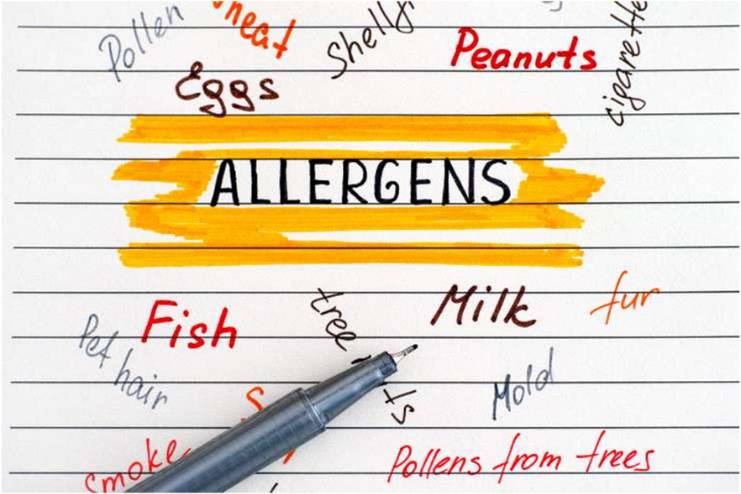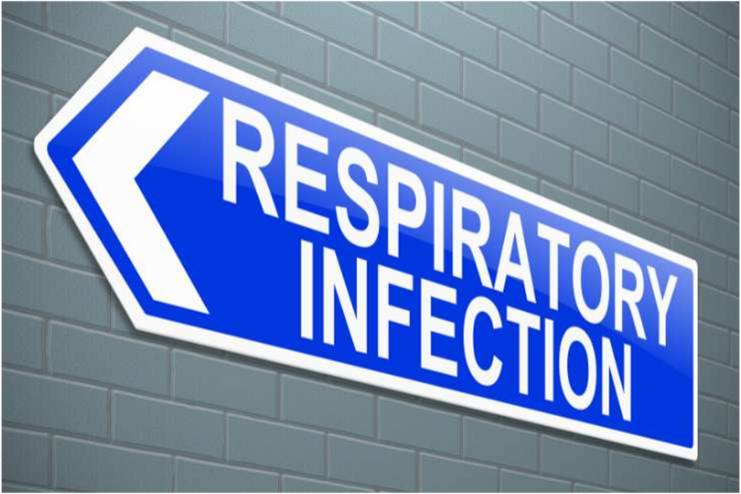Affiliate Disclaimer
Some links in this article are affiliate links. We may earn a small commission if you make a purchase through these links, at no extra cost to you. We only recommend products we find useful to our readersMillions of individuals worldwide have asthma. It’s a chronic respiratory disease that significantly influences everyday life and general respiratory health. For those who have asthma, managing the condition is essential since it entails recognizing and avoiding a variety of triggers that can aggravate symptoms. Efficient asthma management lowers the chance of severe asthma episodes and chronic respiratory problems, enhancing the quality of life for those with the condition.
The purpose of this post is to give a thorough explanation of 10 typical asthma triggers as well as applicable coping mechanisms. People with asthma can better manage their illness and preserve good respiratory health by being aware of and acting against specific triggers.
1. Air Pollution

Exposure to air pollution may worsen asthma symptoms in individuals with asthma. Smog, smoke, and vehicle emissions are all examples of pollutants contributing to poor air quality. Poor air quality and environmental triggers can cause those who have asthma to experience higher respiratory distress. These hazardous particles irritate the airways, causing inflammation and making breathing more difficult. Consistent air quality data monitoring is necessary to manage asthma symptoms effectively.
It is possible to reduce exposure to potentially hazardous pollutants by remaining indoors on days when the pollution levels are significant. A further benefit of using air purifiers in the home is that they may drastically reduce the pollution inside, making the environment friendlier for people with asthma. By implementing these preventative measures, individuals can enhance their ability to safeguard their respiratory health and effectively manage their asthma.
Also, read: Useful Plants to Improve Indoor Air Quality
2. Allergens

Typical allergens that can set off asthma episodes include dust mites, pollen, mold, and pet dander. Other typical allergens include mold and pollen. These minute particles may enter the respiratory system, resulting in irritation and a constriction of the airways, which would ultimately cause difficulties breathing. Maintaining a regular cleaning schedule for living spaces is crucial to reduce the impact of these allergens. One can drastically lessen their exposure to dust mites by utilizing bedding resistant to allergens. Additionally, preventing pets from entering bedrooms can help reduce the amount of contact with pet dander.
Additionally, allergy testing is an effective method for determining the specific allergens responsible for asthma symptoms. Once individuals have recognized the condition, they can make targeted efforts to decrease exposure. These measures include avoiding activities outside during high pollen seasons or reducing humidity to prevent mold growth. The efficient management of asthma symptoms and the maintenance of better respiratory health depend upon taking these preventative measures.
Also, read: 7 Travel Mistakes to Avoid If You Have Asthma
3. Cold Air

When you breathe in cold air, it can cause severe respiratory irritation and bring on symptoms of asthma. It is possible for inhaling cold air to cause constriction of the airways, which makes it more difficult to breathe and may have the potential to trigger winter asthma attacks! It is recommended that individuals with asthma wear a scarf or a mask over their mouth and nose when it is chilly outside.
This will help to reduce the adverse effects of cold air. This straightforward action regulates the air’s temperature before it enters the respiratory system, lowering the probability that the airways will get constricted. When it comes to asthma management throughout the winter months, it is essential to take measures such as maintaining a warm temperature and avoiding making rapid temperature changes. By following these preventative measures, individuals can better safeguard their respiratory health and reduce likelihood of experiencing asthma symptoms triggered by exposure to cold air.
4. Respiratory Infections

Respiratory infections, such as influenza, can significantly exacerbate asthma symptoms. These infections produce inflammation and increased mucus production in the airways, leading to asthma attacks and making breathing more difficult. A yearly flu shot is crucial to lessening the likelihood of a respiratory infection and worsening asthma attacks. This vaccination helps protect against the influenza virus.
Proper hygiene practice, like washing hands frequently and using hand sanitizers, are necessary to prevent the spread of illnesses. Avoiding close contact with sick people is also recommended to lessen the probability of acquiring respiratory infections. Prompt infection care is necessary to prevent complications and ensure respiratory health is at its best. If individuals with asthma take these preventative actions, they can also improve the ability to manage their symptoms and lessen the influence of respiratory infections on their condition.
5. Exercise

Vigorous physical activity, particularly in cold or dry environments, can cause exercise-induced asthma symptoms. This happens because extreme exertion can produce inflammation and tightness of the airways, making breathing more difficult. With appropriate asthma management, people can still enjoy the benefits of physical activity. Before engaging in strenuous physical activity, it is crucial to warm up to prevent exercise-induced asthma. Using a bronchodilator and the instructions provided by a medical practitioner can also assist in opening the airways and reducing symptoms.
In addition, it may be good to choose moderate-intensity activities with a lower risk of triggering asthma attacks. Despite these obstacles, regular exercise is essential for overall health and, when performed under the supervision of a medical professional, can assist in managing asthma more than it would otherwise. By adhering to these safety measures, persons can continue to engage in physical activity and improve their respiratory health.
Also, read: Sweat It Out: 12 Compelling Reasons Why Physical Activity Is Your Best Medicine
6. Stress and Strong Emotions

Stress, anxiety, and intense emotions can act as potent emotional triggers for asthma attacks. An individual can experience extreme emotions, which can result in hyperventilation and tightness of the airways, which in turn can exacerbate asthma symptoms and contribute to flare-ups. Individuals who have asthma must make it a priority to manage their stress appropriately. Techniques such as meditation, deep breathing exercises, and regular relaxation activities can mitigate the effects of stress on respiratory health.
The integration of these stress management techniques into daily activities has the potential to significantly reduce the frequency and severity of emotional trigger-induced asthma attacks. In addition, making mental health care a priority is vital for the management of asthma in its entirety. By treating their emotional and physical health, individuals can better regulate their asthma symptoms and enhance their quality of life.
Also, read: 20 Stress Relieving Foods Help You Reduce It Instantly- Must Know!

7. Tobacco Smoke

The inhalation of tobacco smoke, mainly secondhand smoking, is a substantial irritant for people living with asthma. The presence of several hazardous compounds in tobacco smoke can cause asthma attacks. These chemicals irritate the airways, leading to inflammation and increased mucus production. To safeguard one’s respiratory health, it is of the utmost importance to produce a smoke-free atmosphere within the confines of one’s own house and to steer clear of locations that permit smoking.
Consequently, this lessens the likelihood of exposure to secondhand smoke and contributes to the more efficient management of asthma. We strongly suggest that smokers obtain support to engage in the process of quitting smoking.Individuals who have asthma can experience fewer symptoms and retain better overall respiratory health if they do not expose themselves to tobacco smoke.
HS Recommended Article: Want to Quit Smoking – Follow These Tips
8. Household Chemicals and Fragrances

Exposure to household chemicals and potent fragrances, which are potent asthma triggers, can significantly irritate the respiratory system. Products such as cleaning supplies, perfumes, and air fresheners frequently include harsh chemicals and potent fragrances that can potentially irritate the airways, increasing asthma symptoms. Using natural, unscented cleaning chemicals that are less likely to cause respiratory irritation is recommended to reduce the likelihood of asthma, which improper cleaning practices can trigger.
Another way to maintain improved respiratory health is to avoid products with strong smells, such as those found in personal care products and home items. When using any chemical in the home, it is also essential to ensure adequate ventilation; this helps keep the air clean and decreases the concentration of fumes that could be detrimental to the user. By implementing these preventative measures, individuals can lessen their exposure to asthma triggers and improve their ability to manage their illness.
9. Certain Medications

Medication-induced asthma is a condition in which taking certain drugs causes asthma symptoms. Typically, aspirin, ibuprofen, and beta-blockers, commonly used to treat cardiac problems and high blood pressure, are typical offenders among nonsteroidal anti-inflammatory medicines (NSAIDs). These drugs have the potential to aggravate asthma symptoms and narrow airways, making breathing harder. When new drugs are administered, people with asthma must notify their healthcare providers about their condition. It guarantees that the drugs they take are secure and unlikely to aggravate their asthma. See a doctor about other options if taking any medicine seems to exacerbate asthma symptoms. Finding workable alternatives might help manage the underlying medical issue without endangering respiratory health. People can better manage medication-induced asthma and preserve their general health by taking the initiative and being open with healthcare practitioners.
10. Gastroesophageal Reflux Disease (GERD)

As a result of its association with acid reflux, gastroesophageal reflux disease (GERD) has the potential to make asthma symptoms even more severe. Stomach acid can irritate the airways, resulting in inflammation and the onset of asthma symptoms. This occurs when stomach acid runs back into the esophagus. Efficient management of gastroesophageal reflux disease (GERD) requires making adjustments to one’s lifestyle, such as avoiding eating large meals before going to bed, elevating the head of the bed to minimize the acid reflux, and recognizing and avoiding foods that increase the severity of symptoms.
People suffering from gastroesophageal reflux disease (GERD) and asthma should seek medical advice to manage the symptoms of GERD effectively. When individuals manage gastroesophageal reflux disease (GERD) symptoms, they can lessen the frequency and the severity of asthma exacerbations, ultimately improving respiratory health and general well-being.
Conclusion
Identifying and avoiding common triggers is essential for effective asthma management to protect respiratory health. We emphasized the possible influence of several triggers, such as air pollution and mental stress, on asthma symptoms throughout this article. People with asthma can create individualized treatment programs customized to their needs and triggers by collaborating closely with healthcare experts. To reduce the likelihood of asthma exacerbations, it’s critical to proactively apply techniques, including trigger avoidance, appropriate medication administration, and lifestyle modifications.




















